18+ Sample Marketing Plan
-
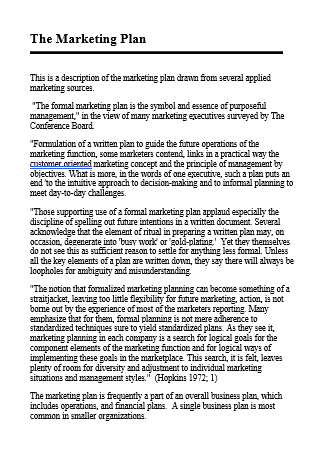
Marketing Plan
download now -
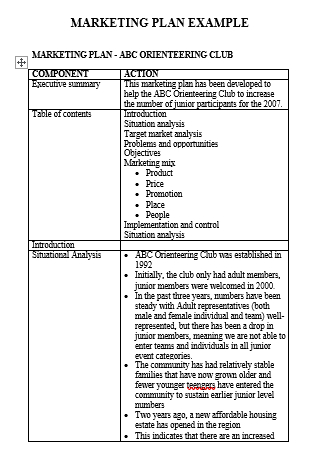
Marketing Plan Example
download now -
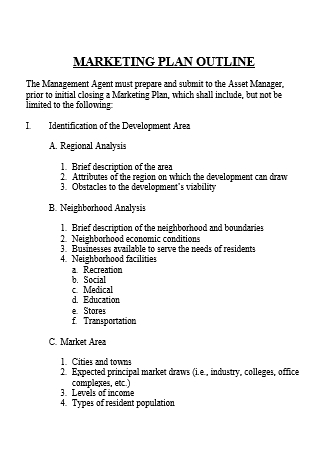
Marketing Plan Outline
download now -
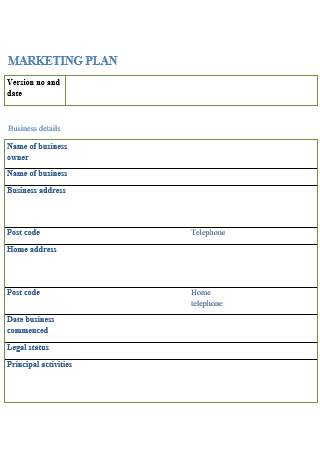
Formal Marketing Plan
download now -
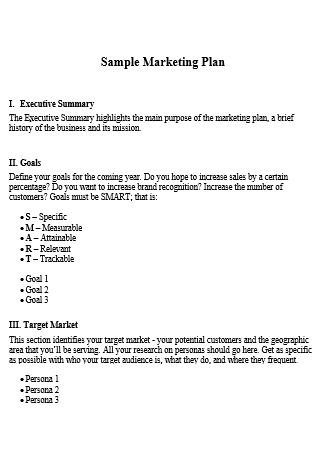
Sample Marketing Plan
download now -
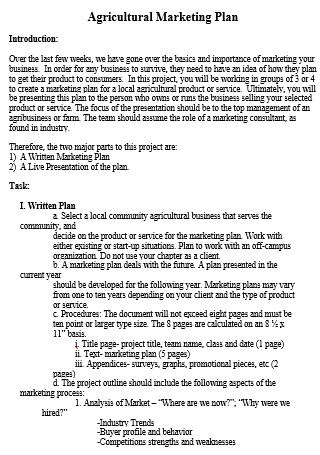
Agriculture Marketing Plan
download now -
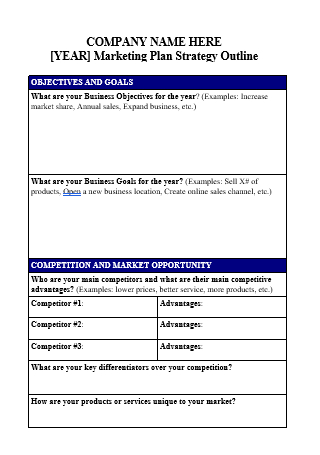
Marketing Plan Strategy Outline
download now -
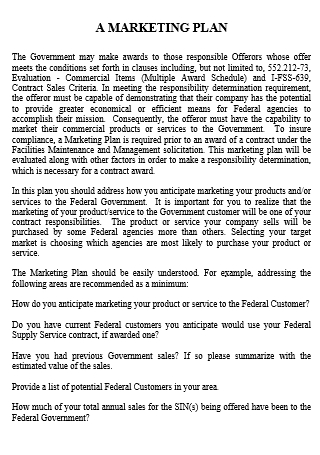
Standard Marketing Plan
download now -
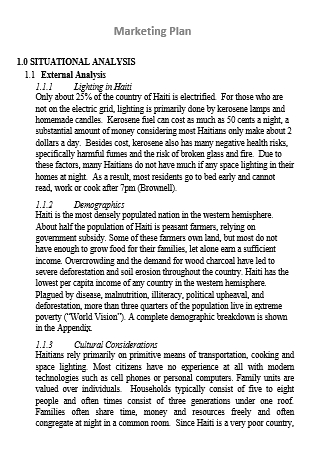
Basic Marketing Plan
download now -
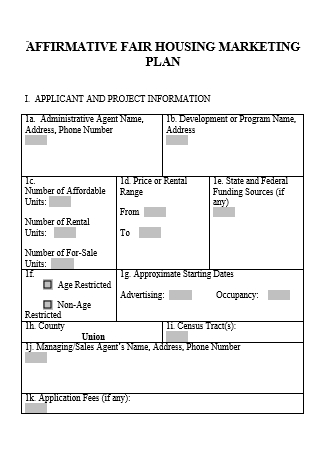
Housing Marketing Plan
download now -
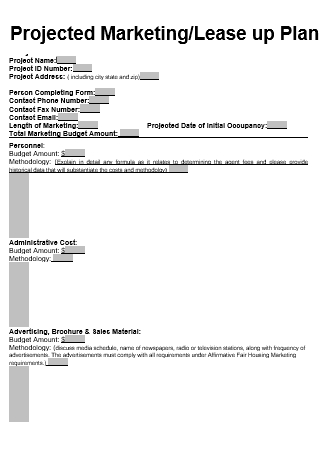
Projected Marketing Lease up Plan
download now -
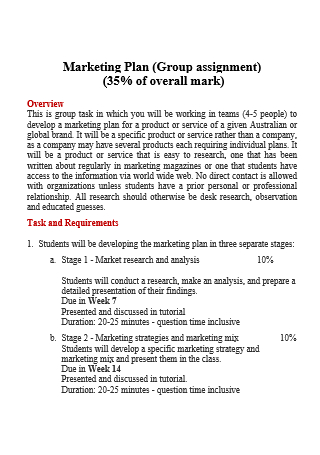
Group Assignment Marketing Plan
download now -
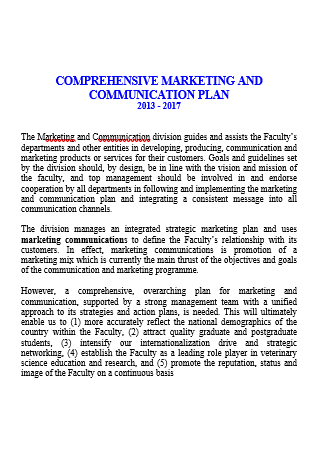
Comprehensive Marketing and Communication Plan
download now -
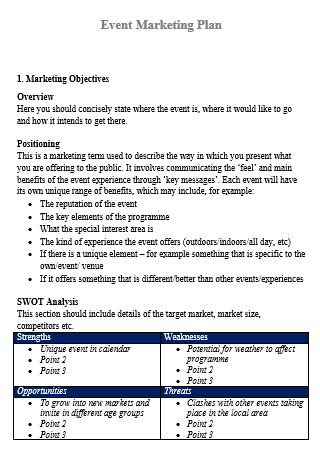
Event Marketing Plan
download now -
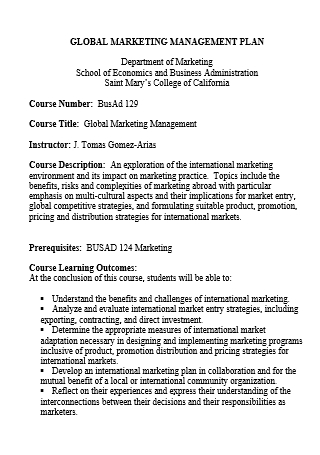
Global Marketing Management Plan
download now -
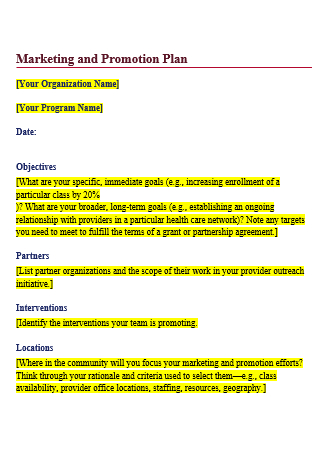
Marketing and Promotion Plan
download now -
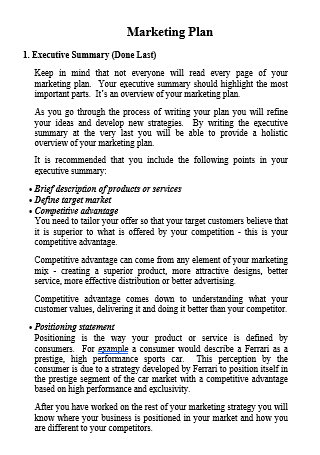
Marketing Plan Format
download now -
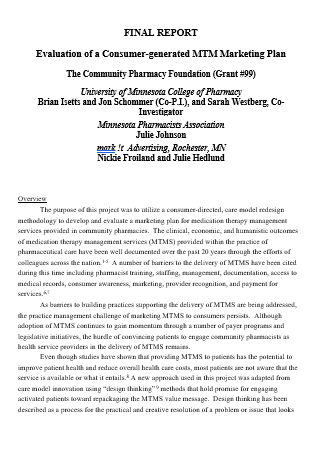
Marketing Plan Final Report
download now -
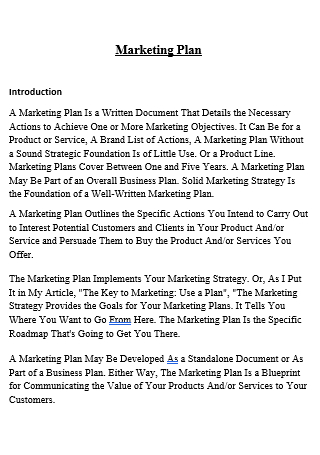
Marketing Plan in DOC
download now
Marketing is essential in businesses as it helps boost sales and create more revenue options through developing various marketing strategies. It also makes organizations set better and achievable goals and objectives that also allow them to build brand recognition and reputation. Having clear goals motivates employees to follow and achieve targets, reaching their customers. Marketing also gives the company the ability to improve decision-making. Through marketing specialists, organizations can know their customers better through intensive research, and this allows them to choose the best decisions that can influence consumer trust. Marketing teams set marketing plans to help them achieve the best results. What is a marketing plan, and what is its significance in the growth and development of a company? The article contains valuable information about the document, including its description, components, and how-to guide. It also provides answers to frequently asked questions about marketing plans from different audiences.
What is a Marketing Plan?
A marketing plan is a business document that is operational in the sense that it provides a roadmap that outlines the advertising strategy and organization plans to implement for lead generation to reach its target market. The marketing plan details all outreach activities and PR campaigns the marketing team intends to accomplish at a given period. The marketing plan defines the target market, value propositions of the brand, product, or service, the outreach activities and PR campaign programs to be implemented, and the company metrics to assess the effectiveness of these marketing efforts. Marketing plans must also go through adjustments throughout a project since there are possible changes in the findings of the metrics since they represent the effectiveness of initiatives. Marketing plans are also a part of business plans. Marketing plans and marketing strategies are often interchangeable since the development of these documents comes from a strategic framework. There are times when these two marketing files form a single record. It is more prevalent in smaller businesses that implement one to two marketing initiatives in a year.
According to HubSpot’s marketing 2022 marketing statistics, trends, and data, in 2020, over 75 percent of organizations how their marketing campaigns directly affect revenue changes. About 15 percent of marketers measure the success of marketing plans through lead generation in the same year.
Components of a Marketing Plan
Each marketing project has different focuses, and a team manager understands how to highlight each task accordingly. A marketing plan is unique on its own, and marketing teams can modify the sections of a marketing plan as necessary to accomplish their advertising plan for possible projects. As such, the document must be comprehensive enough that the reader can make sense of its contents. Below are the essential components of a marketing plan.
How To Create a Marketing Plan
Similar to other marketing documents, there is no standard for writing a marketing plan. Each company constructs their marketing plan according to the product or service they wish to promote. Below is a helpful guide to help the company to develop its marketing plan.
-
1. State the Business Mission and the Corresponding KPIs
The initial step in writing the marketing plan is to develop a mission statement. Despite its specificity to the marketing department, it must apply to the entirety of the company. Be specific with enough space for the entire document to elaborate on the acquisition of customers to accomplish the mission. It is also essential for the marketing team to track the progress of reaching the statement. Identify key performance indicators or KPIs to measure different facets of the marketing plan. It helps the team to distinguish short-term goals and communicate them to business executives.
-
2. Identify the Customer Personas
Customer persona or buyer persona is a description of the market you wish to interact with or attract. It includes information including sex, age group, ethnicity, job title, family size, and others. The buyer persona must be a distinct reflection of the target audience and potential consumers.
-
3. Indicate the Content Initiatives and Marketing Strategies
Describe the various marketing and content strategies that you wish to implement in the marketing plan. There is a long list of possible marketing styles and channels available that it is essential to define and explain how these can influence audiences. The content strategy must indicate the type of content and the amount the company wants to create. It must also include the goals and KPIs to track progress, the channels for distribution, and the presence of paid advertising if possible.
-
4. Define the Plan Omissions
The marketing plan identifies what the marketing teams must work on and achieve. Together with this, it must also include the things that the marketing department will not cover. If there are aspects of the organization that the plan does not serve, they must be visible in the marketing plan. These omissions help justify certain elements in the plan, including the KPIs, customer personas, mission statement, and content.
-
5. Indicate the Marketing Budget for the Plan
Content strategy has the advantage of using different channels for implementation. However, there come hidden costs and expenses that the marketing team must be aware of during the execution of the plan. Indicate all necessary charges, including freelancer fees, full-time marketing employees, and sponsorships, and use the information to complete the marketing budget.
-
6. Identify the Competition and Outline Contributors with their Responsibilities
An essential part of marketing is identifying your competitors. Research all the key players in the industry and create a comprehensive profile for each. Not all competitors will bring challenges to the organization, but it is necessary to have a sense of preparedness. Once everything is complete, identify individuals and their responsibilities. There must be an understanding of the roles of each team and team member in implementing the marketing plan.
FAQs
What are the 7 elements of a marketing plan?
Rather than the seven elements of a marketing plan, there are seven Ps of marketing. It includes products, pricing, place, promotion, people, physical evidence, and processes.
What are the 4 Cs of marketing?
The four Cs of marketing or a marketing model consists of the consumer, including their wants and needs, costs to satisfy, communication strategies, and convenience to buy.
What is the most significant element of a marketing plan?
The most significant piece of a marketing plan is the target audience. It consists of creating the buyer persona and doing the essential research is a critical element.
A marketing plan contains all the necessary information for the marketing team to implement advertising programs, PR campaigns, and other promotional activities for the company. An organization must put research work and dependable individuals to create a comprehensive plan to acquire more customers, retain current consumers, reduce costs, and remain competitive in the industry. Start developing a marketing plan for your company by downloading the Microsoft Word marketing plan samples from the article above.
